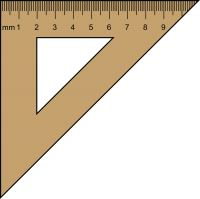Astronomy is the study of space and celestial objects, while astrology is an unproven pseudoscience which attempts to interpret star, planet and cosmic phenomenon movements without supporting evidence, making it unwise to trust these interpretations as true sciences.
This article is specifically written from the viewpoint of a skeptic. While astrology is a popular topic, it is also controversial to some. The data indicates these topics collectively receive millions of searches per month. Believers and skeptics must agree that these practices are permanently ingrained into our society.

Science
Astrology is an ancient practice that involves the study of planets and constellations to gain an insight into human lives. Astrologists believe that they can have an effect on one’s personality, relationships with others, and career path. Astrology also predicts future events by looking back into events that have occurred in the past, and by studying trends over time.
Astronomy, on the other hand, is a science that seeks to explain natural phenomena using mathematical theories and precise astronomical measurements. Astronomy’s theories are continually tested and revised as new information becomes available.
Astrology remains an extremely popular form of divination, with adherents maintaining that astrology can explain human and planetary behavior. However, its effectiveness cannot be proven definitively. One reason astrology cannot be classified as an actual science is because its belief-based foundation makes testing impossible.
Though many astrologers have attempted to make their claims more scientific, they have often failed to meet scientific standards. Astrologers typically portray very general expectations that are impossible to verify in reality, and fail to differentiate between more and less credible predictions. They may even use confirmation bias as justification of their ideas!
Religion
Astronomy is the science of celestial objects, space, and the physical universe as a whole. This discipline uses intricate maps, computers, and evidence from space to gather scientific proof about its nature. Theories are then subjected to experimental scrutiny if necessary, modified if they prove incorrect. In contrast, astrology relies upon subjective interpretation of similar facts combined with magical elements to make predictions. This creates a form of life guidance that lies between science and religion.
Astrology is a pseudoscience because it claims to be scientific practice while not basing itself on logic or evidence. Rather, its foundation lies in myth and superstition. Any time spent trying to predict future events or talents using this ancient, superstitious practice would likely be wasted. Should your horoscope turn out inaccurate, its practitioners will justify this with excuses and potential misinterpretation.
Astrologers interpret heavenly bodies as gods or goddesses that interact with humanity in various ways. For instance, when Mars and Venus oppose one another this represents war and peace, as opposed to spiritual understandings within religions such as Judaism, Christianity or Islam.

Myth
Astrology is a form of divination used to predict earthly and human events by studying fixed stars, sun, moon, and planets. Astrologers believe that these bodies exert direct influences over human behavior. Some forms even claim they manifest the will of god or gods, while others use mechanistic reasoning with no divine intervention whatsoever.
Scientific opinion generally disfavors astrology and many scientists have taken great pains to disprove it. A checklist on the University of California Berkeley website asks visitors to evaluate whether a theory is scientific by asking questions such as, “Is it testable?” and “Does it rely on evidence from science?” Astrology fails these criteria and therefore cannot be considered scientific.
Even after being discredited, astrology still holds some believers. To understand why, it helps to consider how astrology differs from science. Astronomy attempts to comprehend all that lies beyond our solar system by employing complex maps, computers and other tools in its pursuit of truth. Astrology relies more heavily on personal interpretation of evidence rather than scientific confirmation.
Astronomy and astrology both involve stargazing, but their respective methods differ in how they use celestial bodies such as stars and planets. Astronomy uses complex charts and mathematics to study celestial bodies moving across spacetime, with conclusions based on evidence. Astrology focuses more directly on an individual life, to predict how the stars may influence it in the future.

Superstition
Astronomy is the study of celestial bodies; astrology is the belief that stars and planets influence human affairs. Both disciplines have long been intertwined, with many astronomers also practicing as astrologers. However, according to scientific method, ideas must be tested against contradictory evidence before changing. Since astrology has yet to do this yet it cannot be considered science.
Astronomy and astrology both involve gazing into the stars, but only one is recognized as a true science, and that can only be astronomy. Astronomy studies everything outside the atmosphere of Earth such as planets, asteroids and galaxies, and uses intricate maps and computers to gather data.
Astrology, on the other hand, is founded upon the belief that celestial bodies’ movements and relative positions have an effect on human life. Some even take it so far as to suggest that an individual’s destiny and personality traits can be determined by these celestial bodies. This is an immensely self-serving belief with no scientific foundation.
Can They Coexist?
One crucial step towards finding agreement between astrology and astronomy is understanding their distinct purposes. Astronomy seeks to unravel the mysteries of the universe through empirical evidence and scientific methods. On the other hand, astrology aims to provide individuals with insights into their lives and personalities based on the positions of celestial bodies. Recognizing that these fields have different goals can help foster an environment of mutual respect and understanding.
Astrology and astronomy share a rich historical connection. In ancient times, astronomy and astrology were intertwined, with astronomers often being astrologers as well. Many discoveries in astronomy were made in pursuit of understanding astrological phenomena. By appreciating this historical link, we can recognize that both fields have contributed to our knowledge of the cosmos and have shaped our understanding of the universe in unique ways.
While astrology and astronomy may seem vastly different, there are certain overlapping principles that can bridge the gap between the two. For example, both fields rely on the precise calculations of planetary positions and movements. Astronomical observations provide the foundation for astrological predictions, as the alignment of celestial bodies is considered significant in astrology. By acknowledging these shared principles, we can find common ground and foster a more harmonious relationship between astrology and astronomy.

What Science Cannot Measure
One of the key aspects of astrology is its ability to offer a sense of purpose to believers. Many people find comfort in the idea that their lives are not just a series of random events, but rather, part of a larger cosmic plan. Astrology provides a framework for understanding the challenges and opportunities that life presents, helping individuals navigate their paths with a sense of direction and purpose.
Life can often be challenging and overwhelming, and astrology offers emotional support to believers during these difficult times. By examining astrological transits and planetary aspects, individuals can gain a deeper understanding of the cosmic energies at play. This knowledge can help them make sense of their emotions, providing reassurance that their experiences are part of a larger cosmic cycle. Astrology can offer solace, reminding believers that both joys and hardships are temporary and that better times lie ahead.
Believers of astrology often find solace and happiness in the vibrant communities that surround this ancient practice. Astrology enthusiasts come together to share their experiences, exchange knowledge, and support one another. These communities provide a safe space for believers to connect with like-minded individuals, fostering a sense of belonging and understanding. The shared passion for astrology creates a sense of unity and brings comfort to believers, knowing they are not alone in their beliefs.
Astrology, despite its critics, has the power to bring comfort and happiness to believers through its ability to provide a sense of purpose, offer personalized guidance, provide emotional support, foster a sense of community, and encourage self-reflection and personal growth. While astrology may not be for everyone, its impact on the lives of its believers cannot be denied. Whether viewed as a tool for self-discovery, or a source of cosmic wisdom, astrology continues to bring solace and joy to those who find comfort in its teachings.
Content listed below may contain affiliate links.
